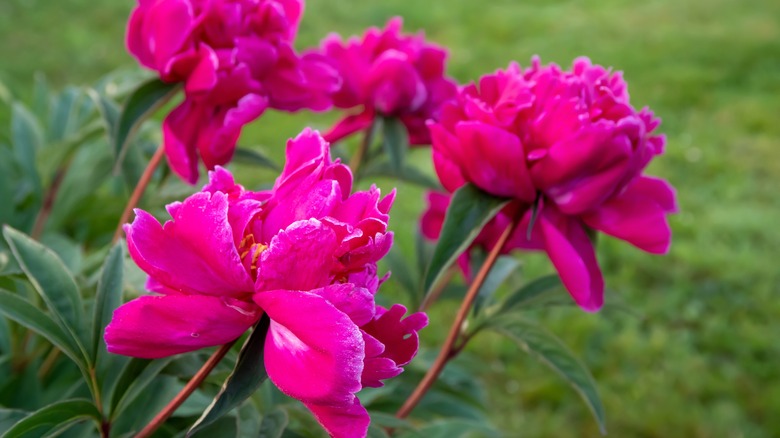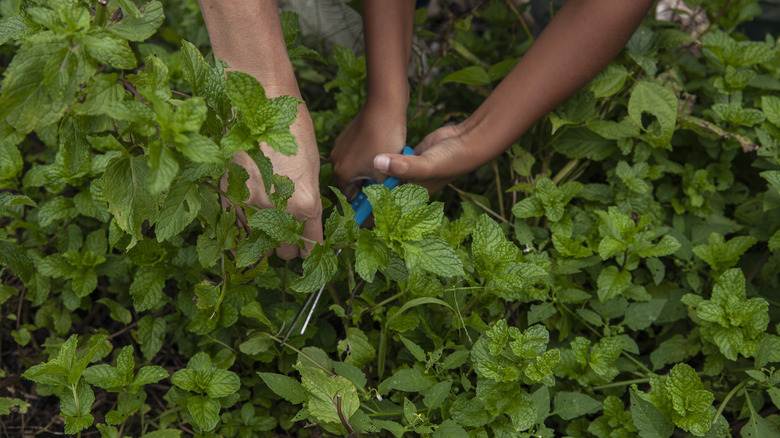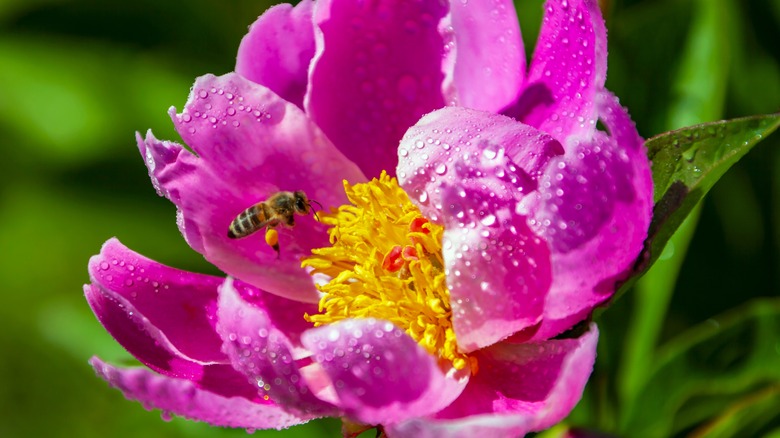The Low-Maintenance Herb That'll Help Your Peonies Thrive
Peonies are beautiful plants that are easy to grow and thrive with proper care. These perennials are hardy, adaptable, and relatively low-maintenance. Once established, they require minimal attention so they are perfect plants for novice gardeners. Depending on the type of peony you're growing, they can tolerate a range of soil conditions, from slightly acidic to slightly alkaline, and can grow in various climates, from cool zones to warmer regions. In addition, peonies do not require frequent watering or fertilization and can withstand harsh winters. While they are hardy plants, they are not immune to the destruction that harmful insects can cause. Fortunately, mint is a wonderful companion plant to help protect your peonies.
While pests can threaten the health of these beautiful blooms, planting mint in the vicinity of peonies can deter these destructive insects from wreaking havoc. Mint also serves a double purpose here, as it can encourage the presence of beneficial pollinators, like bees.
Mint keeps away harmful insects
Insects like aphids can harm peonies in various ways. Aphids are small, soft-bodied insects that feed by sucking sap from the leaves, stems, and flowers of plants. This can weaken peonies and make them more susceptible to diseases. Fortunately, the strong aroma of mint is particularly effective in deterring them. The menthol present in mint acts as a natural repellant, as many insects cannot stand the strong scent that we humans often find so pleasant. Planting mint around peony plants can create a protective barrier, discouraging these pests from approaching and feeding on the delicate peony flowers and leaves.
Mint is also easy to grow in gardens. It's not too picky about where it calls home and will adapt to a variety of soil types. Keep mint plants consistently moist, plant them in well-drained soil, and harvest frequently to promote healthy growth. While you can certainly plant mint in your garden, it's a fast-growing beast that can quickly overtake other plants if you're not careful. For this reason, you may want to keep your mint plants in containers and place them near your peonies instead.
Mint can attract helpful pollinators like bees
While the presence of mint in a garden can repel harmful insects, it also attracts beneficial insects like bees. The sweet aroma of mint flowers is irresistible to these buzzing insects, who are drawn to the nectar and pollen they provide. The strong scent helps bees locate mint plants from a distance, making them an attractive food source.
Using mint to bring more bees into your yard will help them pollinate peonies by transferring pollen from the male anthers to the female stigmas of the peony flowers. This process occurs as bees visit the flowers to collect nectar and pollen for food. As they move from flower to flower, the pollen on their bodies gets brushed onto the stigmas, allowing for fertilization. The flowers are also brightly colored, which further attracts bees to them. Bees buzz from flower to flower, carrying tiny packets of pollen that help the plants produce new generations of beautiful peonies.


